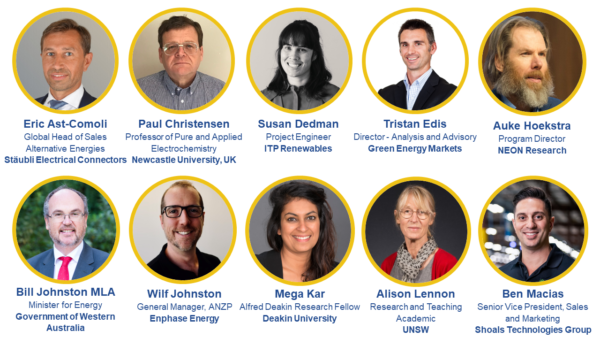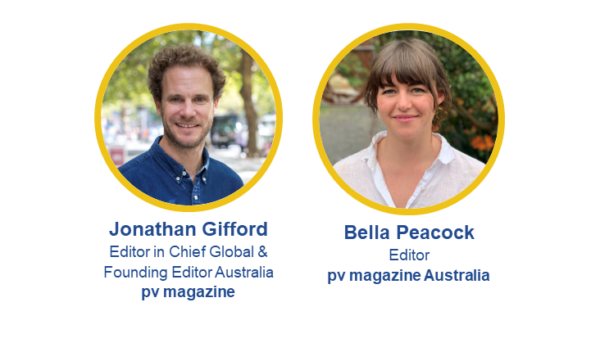
Australia 2021
In partnership with All-Energy Australia
October 12, 2021
This event has ended, but have a look at the recordings:
You can also still check out the agenda and our expert speakers‘ line-up.
Fireproof: ensuring large-scale and distributed battery performance and safety
Battery energy storage systems (BESS) are charging forward Down Under, with batteries big and small required on both the electricity transmission and distribution network. Alongside the growing need, a business case is also building with both high and negative prices becoming more common on the wholesale electricity market. Batteries are also emerging as the perfect tool to provide the necessary grid stabilizing functions as coal generators continue to exit the electricity system.
However, with the rollout of batteries at the distributed and utility-scale have come safety concerns. Recent fires and product recalls have brought the issue to the attention of consumers and regulators alike.
What is the outlook for BESS in Australia? How can battery safety and durability be assured? And how can risks be mitigated both technically and legally?
Program recap:
- WA Energy Minister Bill Johnston, and Scott Oster, Director, Major Projects, SA Department for Energy and Mining, opened proceedings whilst discussing the role for batteries in Western Australia as well as South Australia’s track record to 80% renewables.
- Then, Tristan Edis and Marija Petkovic, two leading energy analysts made the case for battery energy storage systems as the key to unlock the transition to renewable energies and decarbonisation.
- Later on, pv magazine’s Editor, Blake Matich, presented a quality case study on what went wrong at the VBB, followed by renown BESS researcher Paul Christensen from Newcastle University in the UK who provided a rundown on thermal runaway.
- This Insight’s peak was of course, Auke Hoekstra’s inspiring keynote on how and why BESS will transform the energy system. The energy guru was then followed by, ITP Renewables’s Susan Dedman, who presented their latest findings on battery performance.
- Two panels convened to discuss the performance and safety of BESS, at both the utility-scale and distributed, featuring Stäubli’s Eric Ast, Deakin University’s Mega Kar, Shoals’ Ben Macias, Enphase’s Wilf Johnston, the University of New South Wales’ Alison Lennon and Fronius’ Sebastien Ng.
- Last but not least, BMS Brokers’ Richard Nunny and Ariel Re’s Jan Napiorkowski provided both a local and international perspective as to how the future of BESS can be insured.
- Finally, Deakin University’s Cristina Pozo-Gonzalo rounded out the event with the ‘Three Re’s’ of BESS – Redesign, Repurpose and Recycle.
The speakers’ presentations are available here:
Blake Matich_Victorian Big Battery blaze_InsightOz21
Cristina Pozo Gonzalo_Batteries and the circular economy_InsightOz21
Prof Paul Christensen_Rundown on thermal runaway_InsightOz21
Susan Dedman_Latest findings from ITP Renewables independent battery performance testing_InsightOz21
Tristan Edis_Case for Battery energy storage systems_InsightOz21
Speakers

 Moderators
Moderators
You can still check out the agenda and our expert speakers’ line-up.




